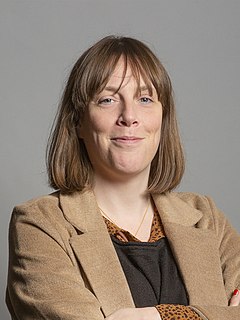A Quote by Jess Phillips
In the world of fiction, politics usually appears considerably more exciting than it is.
Related Quotes
I write some art criticism, and one thing that's clear to me is that politics is fashionable in the American art world in a way it maybe isn't in American fiction. Your work of art becomes fashionable the moment it has some kind of political commentary. I think this has its dangers - the equation between fashion, politics, and art is problematic for obvious reasons. Nonetheless, the notion of politics as being de rigueur in the world of fiction is almost unthinkable. In fiction in America at the moment, the escape into whimsy is far more prevalent than the political.
What if everything you see is more than what you see--the person next to you is a warrior and the space that appears empty is a secret door to another world? What if something appears that shouldn't? You either dismiss it, or you accept that there is much more to the world than you think. Perhaps it is really a doorway, and if you choose to go inside, you'll find many unexpected things.
To be a science fiction writer you must be interested in the future and you must feel that the future will be different and hopefully better than the present. Although I know that most - that many science fiction writings have been anti-utopias. And the reason for that is that it's much easier and more exciting to write about a really nasty future than a - placid, peaceful one.
In some ways I spend longer at non-fiction because there are a lot of different threads to bring together. But non-fiction is more reflective than immersive. The problem with fiction sometimes is that you have to leave the real world to enter the fictional one. And that takes so much, goes into your head for so long?.?.?.?I don't know, I just feel less inclined toward that these days, and more inclined to remain in my own life. I do like really good fiction, but it's getting harder to hold my attention in a novel.
I believe there is no liturgy in the world, either in ancient or modern language, which breathes more of a solid, scriptural, rational piety, than the Common Prayer of the Church of England. And though the main of it was compiled considerably more than two hundred years ago, yet is the language of it, not only pure, but strong and elegant in the highest degree.
For the moment, machines able to 'think' in anything approaching a human sense remain science-fiction. How we should prepare for their potential emergence, however, is a deeply unsettling question - not least because intelligent machines seem considerably more achievable than any consensus around their programming or consequences.
It's important not to take yourself too seriously, ... and I think sometimes people take us a lot more seriously than we take ourselves, especially when it comes to politics. Politics, for me, is a reflection of the world I live in. But love is just as important as politics to me. They both exist in the world, you know? And if you don't reflect the entire world around you, then you're leaving something out.


































